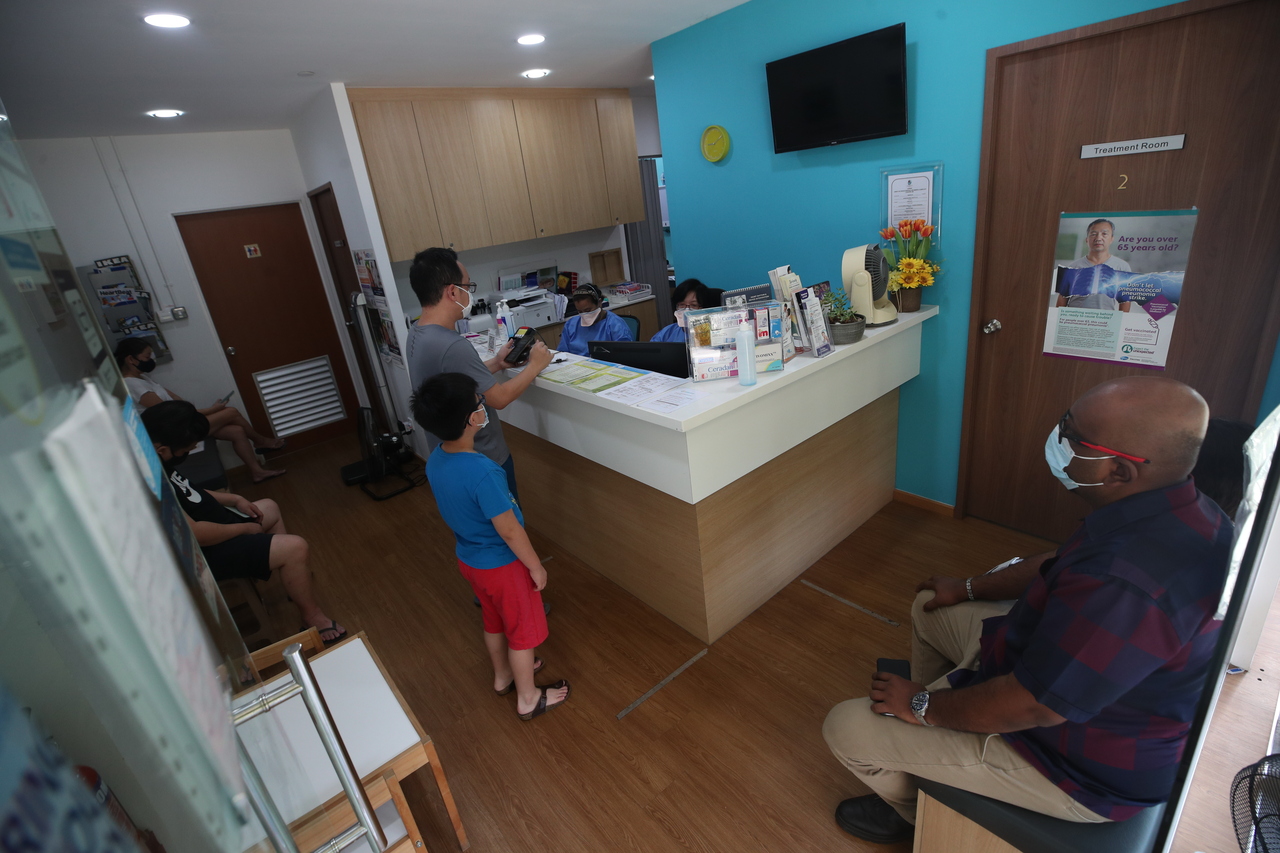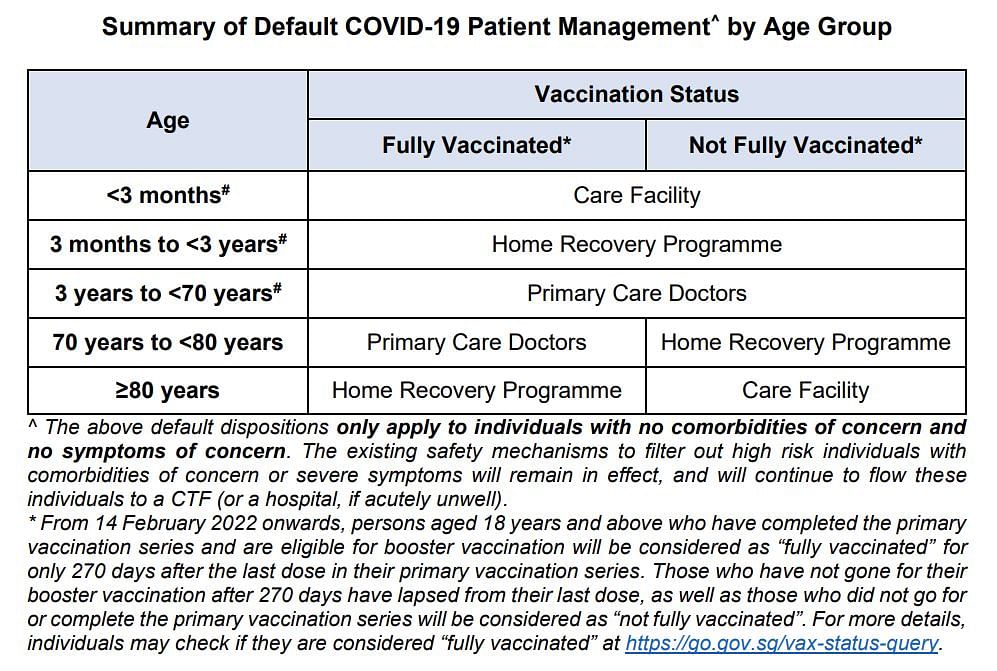More Covid-19 Omicron patients in S'pore can isolate at home
Sign up now: Get ST's newsletters delivered to your inbox

The latest move will ensure that Singapore's healthcare capacity is reserved for those who require acute care.
ST PHOTO: TIMOTHY DAVID
SINGAPORE- From Wednesday (Feb 16), more people infected with Covid-19 can be managed by primary care doctors, said the Ministry of Health (MOH).
Specifically, this applies to those aged three to 69 years old, regardless of vaccination status, and fully vaccinated patients aged 70 to 79 - if they experience only minor respiratory symptoms and have no underlying health risks. They do not need to head to a hospital.
This is an expansion of the previous qualifying age band for treatment from primary care doctors - fully vaccinated patients aged five to 69 years old, and non-fully vaccinated patients aged five to 49.
Patients falling outside of the revised age brackets announced on Wednesday (Feb 16) will continue to be managed by MOH, either through the home recovery programme or at a care facility such as a Covid-19 treatment facility or a hospital.
For instance, all fully vaccinated seniors aged 80 and above as well as non-vaccinated individuals aged between 70 and 79 will be managed under the home recovery programme, where telemedicine providers will monitor and provide treatment as needed.
Those aged 80 and above who are not fully vaccinated will be managed in a care facility.
Also, infected infants below the age of three months will be managed in a care facility, while infected children aged from three months to below three will be put on the home recovery programme.
"We reviewed the outcomes of our patients infected with Omicron. The majority had mild symptoms (and) are asymptomatic, and they're able to safely recover on their own," said Singapore's director of medical services Kenneth Mak at a Covid-19 multi-ministry taskforce press conference on Wednesday.
For example, less than 3 per cent of fully vaccinated patients below the age of 80 and non-fully vaccinated patients below the age of 70 needed oxygen supplementation, or intensive care unit (ICU) care in hospitals. This is in contrast to those who are not fully vaccinated and above the age of 80, where more than 20 per cent needed oxygen supplementation or ICU care.
"This data... allows us now to simplify our health protocols and reduce the need for admission into the hospital or the community treatment facilities for treatment and care," said Prof Mak.
"This means more age groups of patients may now be managed by primary care physicians...if they exhibit mild symptoms."

The latest move will ensure that Singapore's healthcare capacity is reserved for those who require acute care, MOH said in a statement on Wednesday (Feb 16).
As Omicron cases surge, general practitioner clinics and polyclinics have been seeing a flood of Covid-19 patients. More people have also been rushing to the emergency departments of hospitals, even though they have mild symptoms.
"If you are well and suspect you have Covid-19, please self-isolate at home," advised Prof Mak. He said there is no need to see a GP, visit a polyclinic or rush to the emergency department to get a test. If needed, a test can be obtained at various test centres around Singapore. MOH has made these free from Wednesday till March 15.
"Individuals with non-emergency conditions turning up at EDs (emergency departments) may be diverted to other urgent care clinics for further assessment, so as to prioritise ED resources for patients requiring acute care," said MOH in its Wednesday (Feb 16) statement.
"Individuals may also be diverted for admission to Covid-19 treatment facilities for further monitoring of their medical condition, as long as they do not require hospitalisation."


